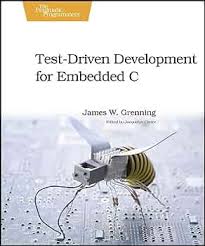Mastering C Development: Harnessing the Power of a Timeless Language
The Power of C Development
C is a powerful and versatile programming language that has stood the test of time. Developed in the early 1970s, C has become one of the most widely used languages in the world, influencing many other popular languages like C++, Java, and Python.
One of the key strengths of C is its efficiency and speed. C allows developers to write highly optimized code that can run close to the hardware, making it ideal for system programming and embedded applications. Its low-level features give developers fine-grained control over memory management and hardware interactions.
Another advantage of C is its portability. Code written in C can be easily adapted to different platforms with minimal changes, making it a popular choice for developing operating systems, compilers, and other software that needs to run on multiple systems.
Despite being a low-level language, C offers high-level constructs like functions and data structures that enable developers to write complex programs with ease. Its simplicity and flexibility make it a great language for both beginners learning programming fundamentals and experienced developers working on large-scale projects.
C development requires attention to detail and a good understanding of computer architecture. Developers need to manage memory manually and handle pointers carefully to avoid common pitfalls like memory leaks or segmentation faults. However, mastering these concepts can lead to writing efficient and reliable code.
In conclusion, C development remains a valuable skill in today’s technology landscape. Whether you are building an operating system, writing device drivers, or optimizing performance-critical applications, knowing C can give you a competitive edge as a developer.
Understanding C Development: Basics, Comparisons, History, and Applications
- What is C development?
- What is C vs C++ development?
- In which year was C invented?
- What is C used to develop?
What is C development?
C development refers to the process of writing, compiling, and debugging programs using the C programming language. C is a powerful and versatile language known for its efficiency, speed, and portability. Developers use C to create a wide range of software applications, from operating systems and device drivers to high-performance applications and embedded systems. In C development, programmers work with low-level features such as memory management and hardware interactions, requiring a strong understanding of computer architecture. Mastering C development allows developers to build robust and optimized software solutions that can run on various platforms with minimal modifications.
What is C vs C++ development?
When comparing C vs C++ development, it’s essential to understand the fundamental differences between these two programming languages. C is a procedural programming language known for its simplicity and efficiency, making it ideal for system-level programming and embedded applications. On the other hand, C++ is an object-oriented extension of C that introduces features like classes, inheritance, and polymorphism, allowing for more complex and structured code organization. While C focuses on procedural programming paradigms and offers low-level control over hardware, C++ emphasizes object-oriented design principles and supports features like templates and exception handling. Choosing between C and C++ depends on the specific requirements of a project, with each language offering unique advantages based on the nature of the development task at hand.
In which year was C invented?
The programming language C was invented in the early 1970s. Developed by Dennis Ritchie at Bell Labs, C quickly gained popularity for its efficiency, versatility, and portability. Its creation marked a significant milestone in the history of computing, influencing the development of numerous other languages and becoming a fundamental tool for software developers worldwide.
What is C used to develop?
C is used to develop a wide range of software applications and systems, including operating systems, device drivers, embedded systems, compilers, and high-performance applications. Its versatility and efficiency make it a popular choice for projects where direct hardware interaction, memory management control, and portability across different platforms are essential. Additionally, C is often utilized in industries such as telecommunications, gaming, finance, and aerospace due to its ability to handle low-level programming tasks effectively.




